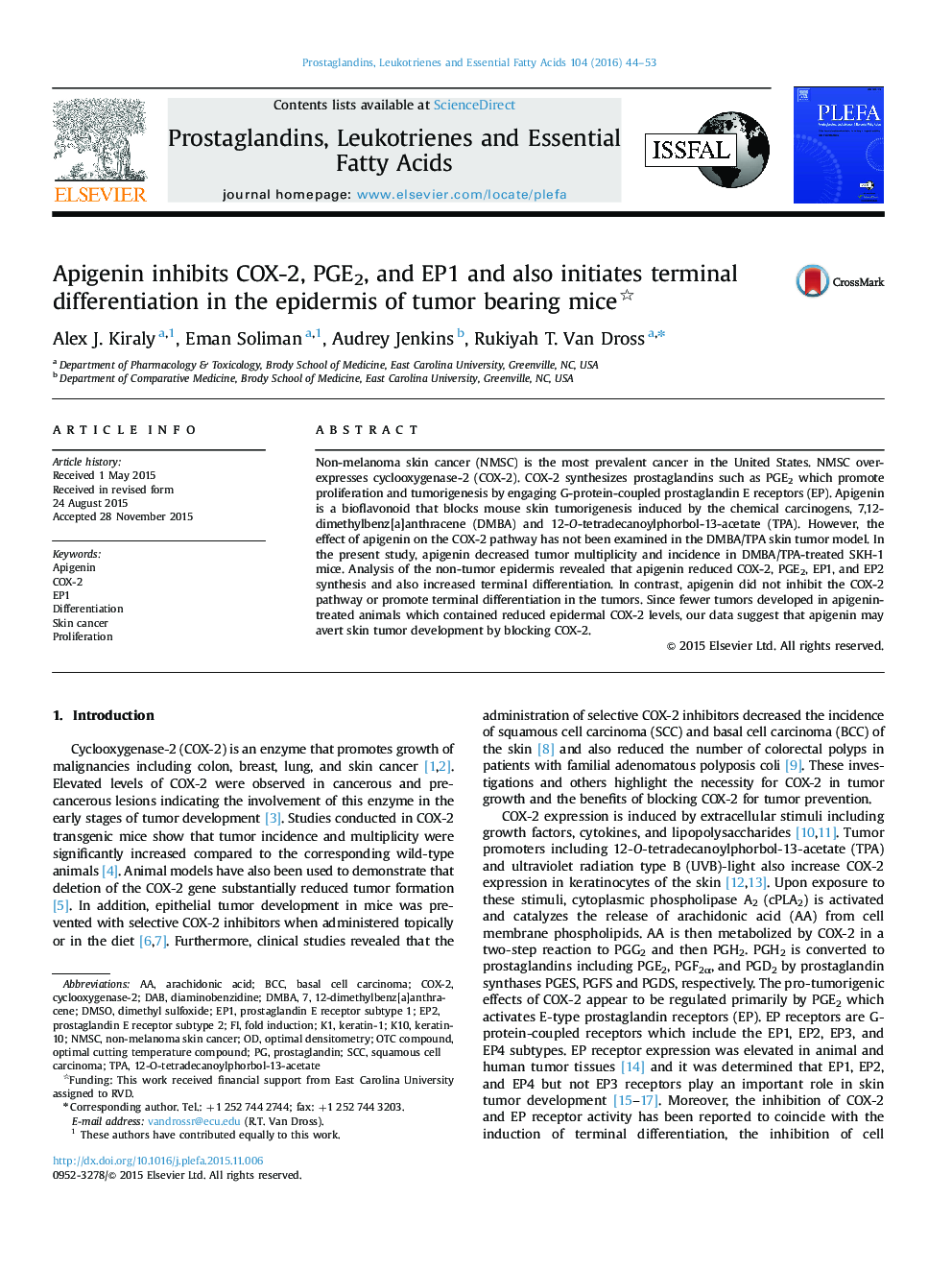| کد مقاله | کد نشریه | سال انتشار | مقاله انگلیسی | نسخه تمام متن |
|---|---|---|---|---|
| 2777460 | 1568015 | 2016 | 10 صفحه PDF | دانلود رایگان |

Non-melanoma skin cancer (NMSC) is the most prevalent cancer in the United States. NMSC overexpresses cyclooxygenase-2 (COX-2). COX-2 synthesizes prostaglandins such as PGE2 which promote proliferation and tumorigenesis by engaging G-protein-coupled prostaglandin E receptors (EP). Apigenin is a bioflavonoid that blocks mouse skin tumorigenesis induced by the chemical carcinogens, 7,12-dimethylbenz[a]anthracene (DMBA) and 12-O-tetradecanoylphorbol-13-acetate (TPA). However, the effect of apigenin on the COX-2 pathway has not been examined in the DMBA/TPA skin tumor model. In the present study, apigenin decreased tumor multiplicity and incidence in DMBA/TPA-treated SKH-1 mice. Analysis of the non-tumor epidermis revealed that apigenin reduced COX-2, PGE2, EP1, and EP2 synthesis and also increased terminal differentiation. In contrast, apigenin did not inhibit the COX-2 pathway or promote terminal differentiation in the tumors. Since fewer tumors developed in apigenin-treated animals which contained reduced epidermal COX-2 levels, our data suggest that apigenin may avert skin tumor development by blocking COX-2.
Journal: Prostaglandins, Leukotrienes and Essential Fatty Acids (PLEFA) - Volume 104, January 2016, Pages 44–53